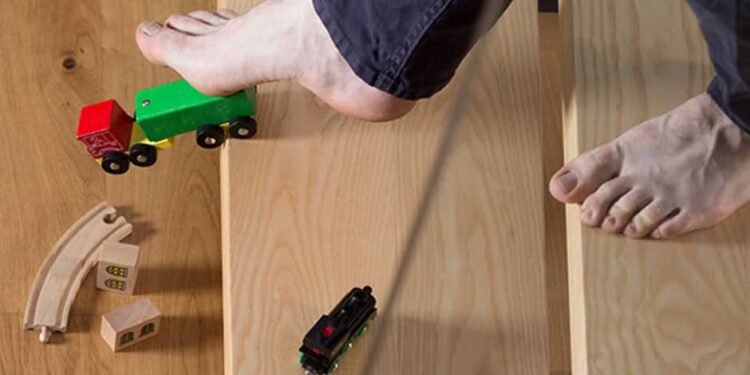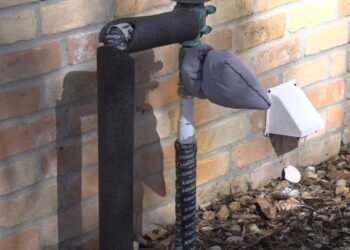Home is where we feel the safest, but it’s also where many accidents can occur. Understanding the common causes of home accidents and implementing preventive measures can help protect your family and ensure a safe living environment.
Falls
Falls are one of the most common types of home accidents. They can occur in various areas of the home, including bathrooms, kitchens, and staircases. Common causes of falls include slipping on wet floors, tripping over objects, and missing a step on the stairs. People who fall may get hurt in an accident, leading to injuries that can significantly impact their daily lives.
To reduce the risk of falls:
- Install Non-Slip Mats: Place non-slip mats in bathrooms and kitchens to prevent slips on wet surfaces.
- Ensure Proper Lighting: Make sure hallways, staircases, and other potentially hazardous areas are well-lit to help prevent trips and falls.
- Keep Floors Free of Clutter: Regularly clean floors and keep pathways clear of objects to minimize tripping hazards.
Fires
Fires in the home can be devastating and often start from common sources such as cooking accidents or electrical faults. When a fire occurs, those involved can suffer severe burns or smoke inhalation. To prevent home fires:
- Check and Maintain Smoke Detectors: Install smoke detectors in key areas of your home and test them regularly to ensure they are functioning properly.
- Create a Fire Escape Plan: Develop and practice a fire escape plan with all members of your household to ensure everyone knows how to evacuate safely.
- Avoid Overloading Electrical Outlets: Do not overload outlets with multiple appliances, and use power strips with built-in circuit breakers to prevent electrical fires.
Poisoning
Poisoning can occur from accidental ingestion or exposure to hazardous substances such as household chemicals or medications. If someone is hurt in an accident involving poisoning, they may experience serious health complications that require immediate medical attention. To prevent poisoning:
- Store Chemicals and Medications Safely: Keep all cleaning supplies, medications, and other potentially toxic substances out of reach of children, preferably in locked cabinets.
- Use Childproof Caps: Ensure that medication bottles have childproof caps to prevent children from accessing them.
- Keep Emergency Contact Numbers Accessible: Have the number for poison control and emergency services readily available in case of accidental poisoning.
Burns
According to the U.S. Army Institute of Surgical Research, over 70% of burns do happen at home. Burns are often caused by hot liquids, contact with hot surfaces, or accidental exposure to open flames. A burn injury can range from minor to severe, impacting one’s quality of life. To prevent burns:
- Use Oven Mitts and Pot Holders: Always use oven mitts or pot holders when handling hot pots and pans to avoid burns.
- Set Water Heaters to a Safe Temperature: Adjust your water heater to a safe temperature to prevent scalding from hot water.
- Install Stove Guards: Use stove guards to prevent young children from accidentally coming into contact with hot stove surfaces.
Cuts and Lacerations
Cuts and lacerations can result from sharp kitchen utensils, broken glass, or other hazardous materials. To minimize the risk:
- Store Knives and Sharp Objects Safely: Keep knives and other sharp tools in a designated drawer or knife block to prevent accidental cuts.
- Clean Up Broken Glass Immediately: If glass breaks, carefully clean up the shards using a broom and dustpan, and use gloves to avoid injury.
- Teach Safe Handling Practices: Educate family members, especially children, on how to handle sharp objects safely.
Drowning
Drowning can occur in any body of water, including bathtubs and swimming pools. To prevent drowning:
- Supervise Children Around Water: Always keep a watchful eye on children when they are near water, including in bathtubs, pools, or even during bath time.
- Install Barriers Around Pools: Use fences or safety gates around swimming pools to restrict access to unsupervised areas.
- Teach Water Safety Skills: Enroll children in swimming lessons and teach them basic water safety skills to help prevent accidents.
Strains and Sprains
Strains and sprains often result from lifting heavy objects, sudden movements, or improper body mechanics. To prevent these injuries:
- Use Proper Lifting Techniques: Bend your knees and keep your back straight when lifting heavy objects to avoid strain and injury.
- Ensure Proper Ergonomics: Set up workspaces and perform household tasks with ergonomic practices to reduce strain on your body.
- Warm Up and Stretch: Before engaging in physical activities or home projects, warm up and stretch to prevent muscle strains and sprains.
Electrical Hazards
Electrical accidents can occur due to faulty wiring, exposed cords, or misuse of electrical appliances. To reduce electrical hazards:
- Inspect Electrical Systems Regularly: Have a licensed electrician inspect your home’s electrical system periodically to identify and address any potential issues.
- Avoid Using Damaged Cords: Replace frayed or damaged electrical cords and avoid running cords under rugs or furniture.
- Hire Professionals for Repairs: For any electrical repairs or upgrades, hire a licensed electrician to ensure safety and compliance with electrical codes.
Staying Safe
Home accidents can have serious consequences, but many of them are preventable with proper safety measures. By addressing common causes of home accidents—such as falls, fires, poisoning, burns, cuts, drowning, strains, and electrical hazards—you can create a safer environment for your family.












